To provide rehabilitation services to everyone in Uzbekistan
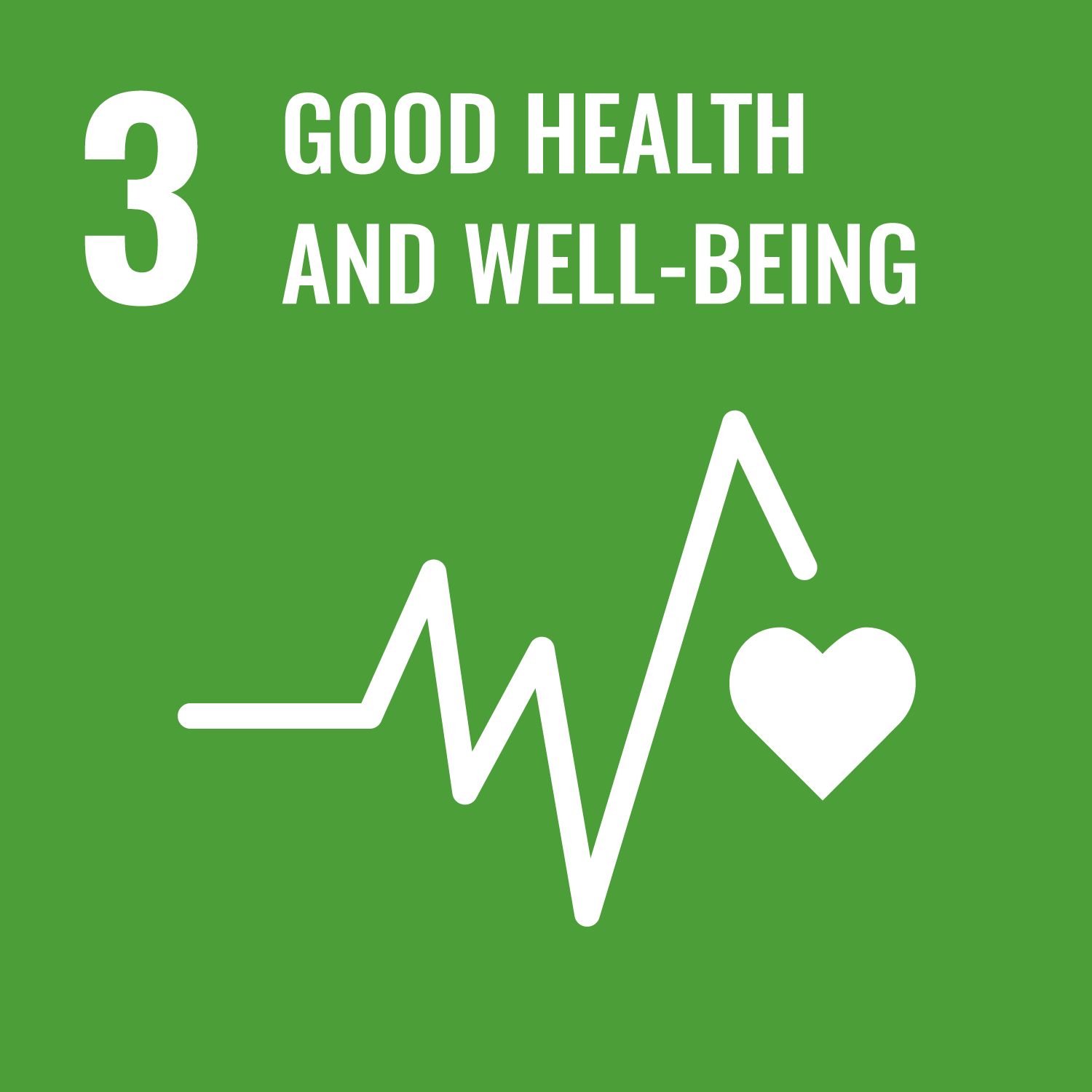
2025.10.20
-

- Uzbekistan Office, Murakami Joji
In Uzbekistan, it is estimated that one million citizens require rehabilitation services each year, yet fewer than 30,000 actually receive them annually. This blog introduces JICA's efforts to address this issue.
In Japan, a well-established rehabilitation system provides services across three stages:
However, in Uzbekistan, there is no comprehensive public rehabilitation system that offers seamless services from the acute phase through to the recovery and maintenance phases. As a result, patients who could potentially reintegrate into society are left without adequate support. For example, rehabilitation is rarely provided during the typical 30-day hospitalization period following a stroke. Although patients are advised to continue treatment on an outpatient basis after discharge, in reality, many end up relying solely on family care.
Moreover, to receive long-term rehabilitation, individuals generally need to be officially recognized as having a disability, which requires a disability period of at least 120 days. This creates a "gap period" during which patients cannot receive necessary treatment.
In contrast, in Japan, physiotherapists typically provide exercise therapy and physical therapy (which involves physical modalities such as heat and electrical stimulation) to individuals with physical disabilities due to injury or illness, or those at risk of developing such disabilities. These therapies aim to restore and maintain essential motor functions, prevent the progression of disabilities, and support patients in leading independent daily lives. However, in Uzbekistan, there is currently no official certification system for physiotherapists, and existing training programs for nurses and other healthcare professionals lack specialized education in rehabilitation techniques and knowledge.
To address the challenges in the rehabilitation sector mentioned above, JICA has dispatched a total of 15 volunteers as of September 2025, including 13 physiotherapists, 1 specialist in support for children and adults with disabilities, and 1 specialist in welfare equipment. JICA plans to continue dispatching volunteers in response to requests from the Government of Uzbekistan.
Kana Sato, a physiotherapist who worked for about two years until 2025, had the opportunity to meet President Mirziyoyev of Uzbekistan during the opening ceremony of a newly established daycare center in Andijan City. Ms. Sato explained in Uzbek that she was involved in providing rehabilitation and care guidance for stroke patients as a JICA volunteer. President Mirziyoyev expressed his gratitude for the efforts to strengthen the relationship between Japan and Uzbekistan and encouraged the continuation of such activities to improve social welfare in Uzbekistan. This interaction underscored the high expectations placed on volunteer activities and the development of the rehabilitation sector.
In addition to its activities in Uzbekistan, JICA supports local problem-solving by inviting stakeholders to Japan to learn about its advanced rehabilitation practices. In the 2025 country-specific training program titled "Central Asia Stroke Rehabilitation," 16 participants, including government officials, doctors, and nurses from Uzbekistan, Kazakhstan, Kyrgyzstan, and Tajikistan, visited Japan.
In Central Asia, a significant number of deaths are caused by non-communicable diseases, with a particularly high mortality rate from cerebrovascular and cardiovascular diseases. Even when lives are saved through appropriate treatment, strokes can result in lasting physical disabilities due to brain damage. They can also lead to conditions like disuse syndrome, which is characterized by muscle weakness and limited joint mobility resulting from prolonged bed rest.
Therefore, timely and appropriate rehabilitation is a crucial intervention for stroke patients, influencing early mobilization, social reintegration, and having a direct impact on their quality of life. The trainees from Uzbekistan recognized the importance of rehabilitation but shared a common challenge: insufficient service provision in their home country. The training program addressed this by incorporating practical exercises and covering specific topics such as stroke severity assessment, assistance methods, and treatment. This approach aimed to equip participants with practical rehabilitation skills that they could apply in their local contexts.
During the training, the participants were notably proactive in asking questions about rehabilitation methods and the use of assistive devices and equipment, demonstrating a strong desire to learn from Japan's rehabilitation practices. They also expressed a clear interest in strengthening cooperation with JICA to enhance Uzbekistan's rehabilitation system.
JICA remains committed to providing ongoing support to ensure that rehabilitation services reach everyone in Uzbekistan. This commitment includes continued collaboration and knowledge exchange to help build a more effective and accessible rehabilitation system in the country.
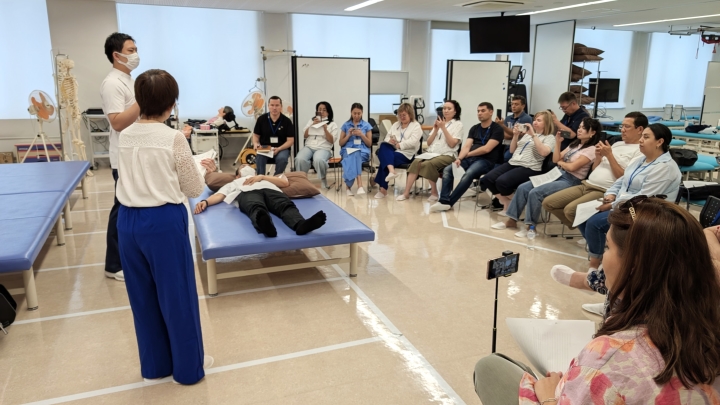
Visit to Kyorin University
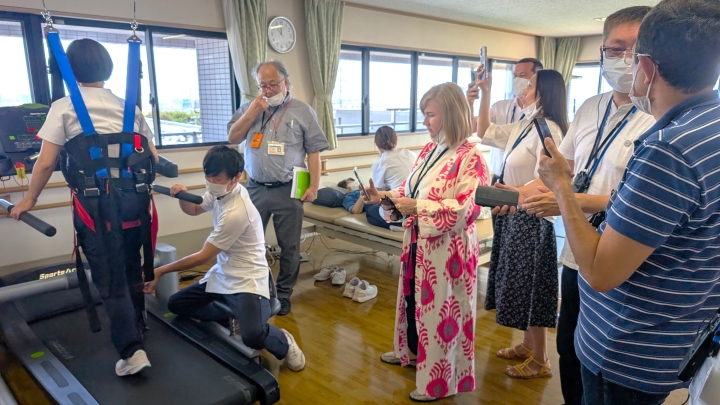
Visit to the Kawagoe Rehabilitation Hospital
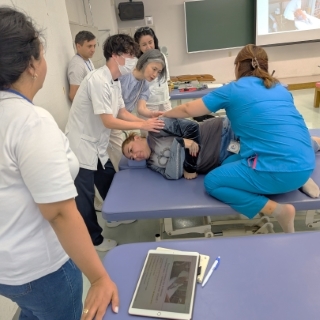
Practicing caregiving techniques (at School of Physical Therapy, Medical Academy)
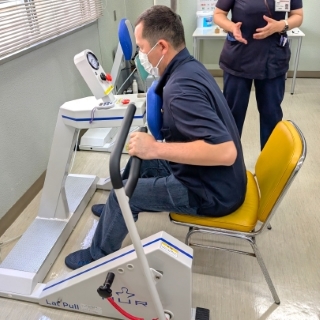
Using occupational therapy equipment (at the Saitama Prefectural Rehabilitation Center)
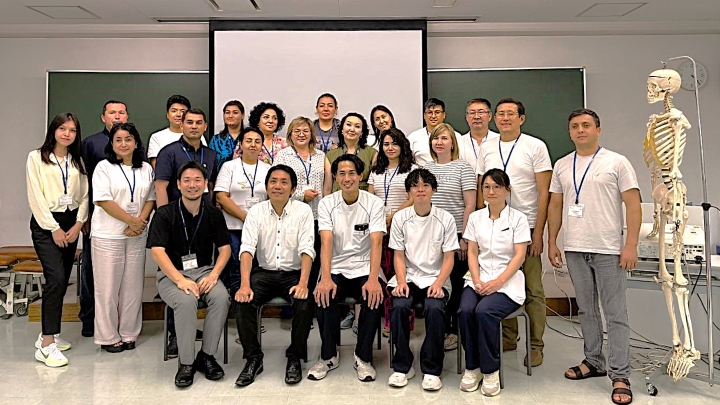
Group photo of all participants
scroll